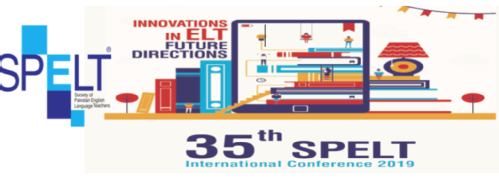Problems -> Questions -> Solutions: Addressing classroom challenges
Plenary webinar at the 35th SPELT (Society of Pakistan English Language Teachers) conference, Karachi, 26 October 2019

Powerpoint slides
Webinar recording
Abstract: The problems teachers face in large-class, low-resource classrooms have received more attention in recent years, for example in work led by TELCnet – the international Teaching English in Large Classes research and development network – which was founded following the SPELT conference in 2007 – and in the book International Perspectives on Teaching English in Difficult Circumstances (eds. Kuchah & Shamim, 2018). However, in the continuing absence of teacher training and in-service teacher development opportunities which directly address the challenges, teachers still remain largely unsupported.
In this paper I illustrate the value of teachers taking matters into their own hands, individually or collaboratively, making reference to my work with TELCnet and to projects and workshops I have carried out with the British Council in Latin America and South Asia.
I start with a list of common challenges which have arisen from this work. Then I illustrate how teachers can assume agency by converting such problems into questions – firstly, ‘How can I …?’ questions which can lead to advice-seeking within local communities of practice and, secondly, exploratory questions which, when pursued, can be particularly generative of transformative insights. Finally, I present examples showing how teachers have taken action to explore and to discover appropriate solutions.
|
Richard Smith (University of Warwick), co-founder with Fauzia Shamim of TELCnet (Teaching English in Large Classes network), was also coordinator of IATEFL Research SIG (2011–2015). He has led teacher-research initiatives in Chile, India and Nepal, producing British Council books including Teaching in Low-resource Classrooms: Voices of Experience and A Handbook for Exploratory Action Research. More information: http://www.warwick.ac.uk/richardcsmith |
